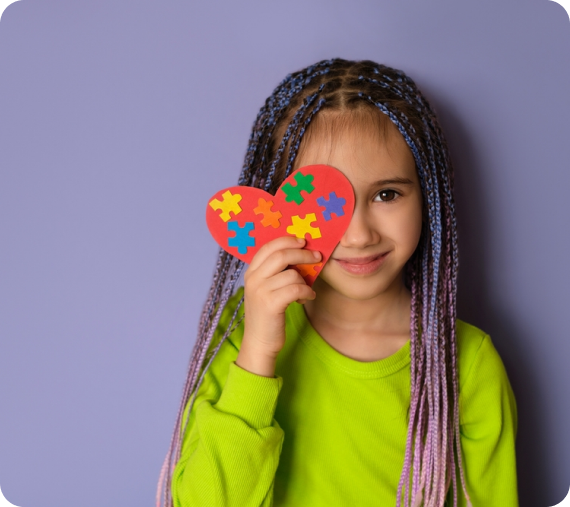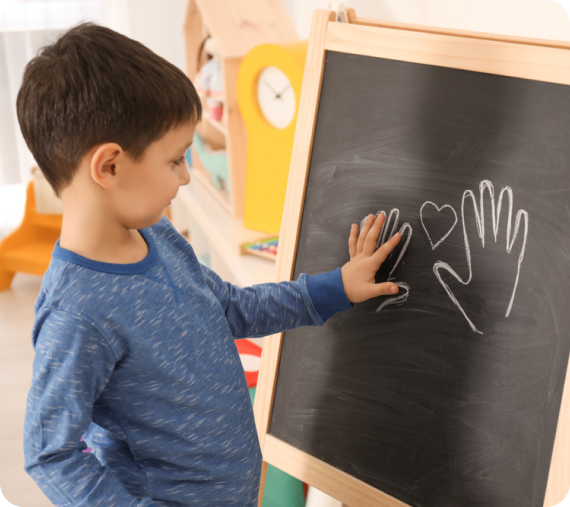أعراض اضطراب طيف التوحد
تظهر أعراض اضطراب طيف التوحد عادة في عمر السنتين إلى الثلاث سنوات
الأعراض الأساسية لاضطراب طيف التوحد:
صعوبات في التواصل والتفاعل الاجتماعي أنماط من السلوكيات التكرارية والمحدودة.

1- صعوبات في التواصل والتفاعل الاجتماعي
صعوبات في التواصل اللفظي وغير اللفظي، على سبيل المثال:
- صعوبات في اللغة اللفظية
- صعوبات في الكلام.
- صعوبات في تنظيم نبرة الصوت (على سبيل المثال، قد يتحدثون بصوت عالٍ جدًا، أو بهدوء شديد و/أو بصوت رتيب).
- صعوبات في اللغة غير اللفظية
- صعوبات في فهم واستخدام الإيماءات.
- صعوبات في التواصل البصري.
- صعوبات في فهم واستخدام تعابير الوجه ونبرة الصوت.
صعوبات في التفاعل الاجتماعي
- صعوبات في التعرف على مشاعر الآخرين.
- صعوبات في التعرف والتعبير عن عواطفه ومشاعره.
- صعوبات البدء في الكلام والتناوب بالدور أثناء المحادثة.
- الشعور بالإرهاق الشديد في المواقف الاجتماعية.
- صعوبات في تكوين صداقات واللعب مع الأقران.
- صعوبات في تحديد المسافة المناسبة بين الشخص ذو اضطراب طيف التوحد والآخرين.


2- أنماط من السلوكيات التكرارية والمحدودة
تختلف أنماط السلوكيات المحدودة والتكرارية اختلافًا كبيرًا بين الأفراد ذوي اضطراب طيف التوحد حيث يمكن أن تشمل:
- حركات الجسم المتكررة مثل (الدوران، رفرفة اليدين، هز الجسم، الركض ذهابًا وإيابًا).
- الحركات المتكررة بالمجسمات مثل (هز الأعواد، تدوير عجلات السيارات، تقليب السيارات).
- الطقوس في السلوكيات مثل: صف الأشياء (المجسمات) بشكل معين، مشاهدة نفس مقاطع الفيديو، لمس الأشياء بشكل متكرر بترتيب محدد.
- اهتمامات محدودة في مواضيع معينة.
- الحاجة إلى نفس الروتين ومقاومة التغيير مثلًا: (نفس الجدول اليومي، نفس قائمة الوجبات).
قد يُظهر الأفراد المصابون بالتوحد حساسية مفرطة (استجابة زائدة) أو حساسية منخفضة (استجابة ضعيفة) تجاه مجموعة متنوعة من المحفزات، وغالبًا ما يكون لدى معظمهم مزيج من الحالتين معًا
- الاختلافات الحسية، مثل الحساسية غير العادية للضوء، أو الصوت أو اللمس أو الملمس.
- عدم الحساسية للألم أو درجة الحرارة.
- السلوكيات الحسية (مثل شم الأشياء، أو لمسها، أو الانبهار البصري بالأضواء، أو الحركة).

